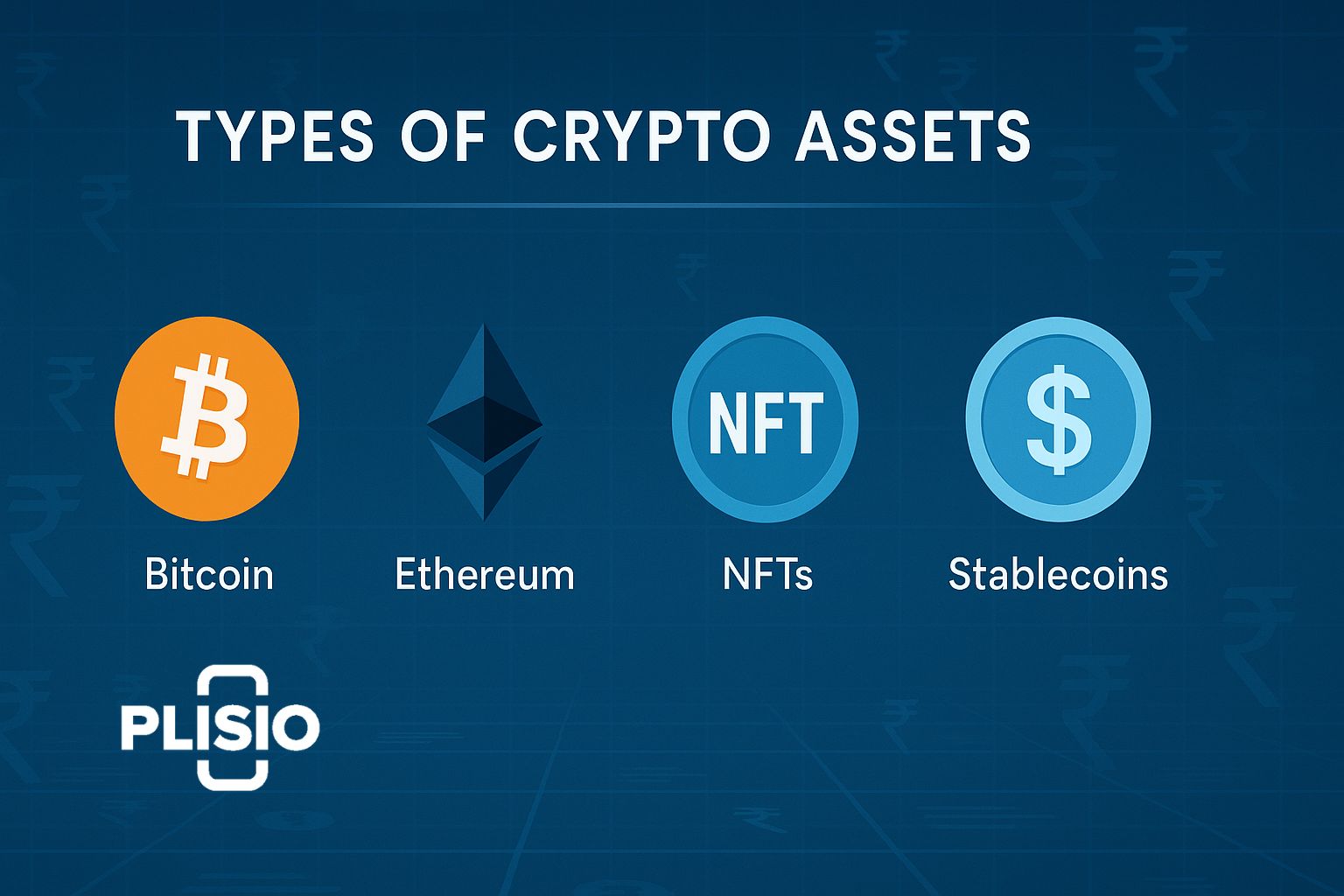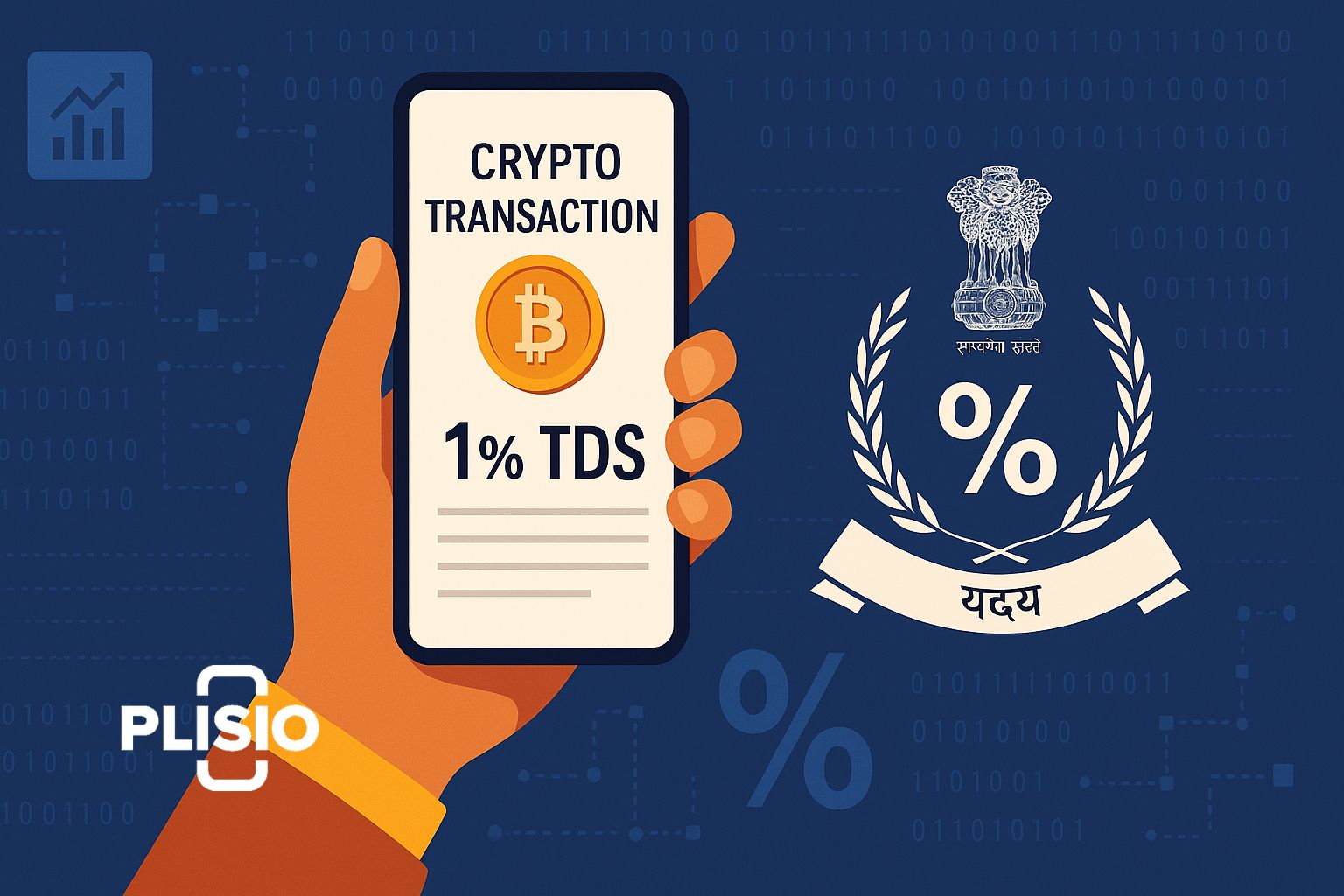Crypto Tax in India: What to Expect in 2026

As cryptocurrency in India grows in popularity, understanding the crypto tax in India framework has become crucial. Whether you're a casual investor, a frequent trader, or someone who receives crypto income through crypto mining or as a crypto gift, being compliant with India's tax regulations is not optional. With 2025 here, it is more important than ever to stay informed on how the income tax department views and enforces taxation of virtual digital assets (VDAs).
The Legal Foundation of Crypto Tax India
Until recently, the tax law on crypto in India was ambiguous. But the introduction of Section 115BBH of the Income Tax Act and the inclusion of VDAs provided the foundation for regulation.
According to the income tax act to define VDAs:
- Any profit made through the sale of crypto or transfer of VDAs is subject to tax in India.
- A fixed tax rate of 30% applies to gains from crypto asset sales.
- A 1% tax deducted at source (TDS) applies to each crypto transaction exceeding certain thresholds.
These provisions continue into 2025, reinforced by Budget 2025, which while not introducing new rules, emphasized strict enforcement and increased reporting standards.
Summary of Key Regulatory Milestones
|
Year |
Event Description |
Crypto Tax Impact |
|
2021 |
First mention in Budget |
Initial recognition of crypto in policy |
|
2022 |
Section 115BBH passed |
Introduced 30% tax on crypto gains and 1% TDS |
|
2023 |
Reporting requirements tightened |
Exchanges must report users' activities |
|
2025 |
Budget 2025 continues enforcement |
Tighter oversight, possible goods and services tax introduction |
Types of Crypto Subject to Tax
The tax applies to all types of crypto:
- Coins (e.g., Bitcoin, Ethereum)
- Stablecoins
- NFTs (Non-Fungible Tokens)
- Wrapped tokens
If you buy crypto with fiat currency like INR and later sell or swap it for another coin, the difference is taxable in India.

When Tax Applies: Common Scenarios
You must pay tax when you:
- Buy crypto and sell at a profit
- Transfer crypto between wallets with a price difference
- Receive a crypto gift from a non-relative (above INR 50,000 in value)
- Earn crypto income via crypto mining or staking
You don’t pay tax immediately when you:
- Simply hold crypto holdings (no sale or exchange)
- Transfer coins between wallets you own without any price movement
Even in non-taxable events, all crypto transactions must be recorded for accurate reporting.
Capital Gains and Tax Rules
Profits from the sale of crypto assets are treated as capital gain, but unlike equities or real estate, they are taxed under a flat tax rate of 30%:
- No indexation benefits
- No exemption under long-term/short-term gain rules
- Crypto losses cannot be offset against gains from other asset classes
Only the cost of acquisition is deductible. You cannot deduct transaction fees, platform charges, or gas fees.
Income Tax Slab vs Flat Rate
Some crypto income (like gifts and mining rewards) may fall under your regular individual income tax slab rate. However, income from crypto trading is taxed at 30%, regardless of your income tax slab. This means that someone in a 5% individual tax slab will still pay tax at the higher tax slab rate.
Crypto Gifts and Tax Implications
Let’s look at a case:
- You receive a crypto gift worth INR 1.2 lakh from a friend.
- Since it exceeds the exemption limit (INR 50,000) and is not from a relative, it's added to the income tax.
- If you are in India’s highest income tax bracket, you’ll pay tax at your individual slab.
Transfer of Crypto Between Your Own Wallets
Although many users assume that crypto between your own wallets is tax-free (which it usually is), reporting is still advised to avoid disputes. The income tax department wants full visibility into all crypto transactions.
Tax Calculations and Tools
To calculate tax on crypto, use certified tools or a tax calculator. Ensure that you:
- Convert transaction values to INR at the time of transfer
- Record the date, type of asset, and cost of acquisition
- Maintain separate records for multiple crypto assets
Use this formula: Taxable Profit = Sale Value – Purchase Cost
Then apply:
- 30% tax rate for trading and investment gains
- Slab-wise tax for gifts/mining income
- 1% TDS on crypto trades

Step-by-Step Guide: How to File Your Crypto Taxes
- Collect transaction data from crypto exchanges and wallets
- Categorize each event: buy, sell, receive, gift, mine, etc.
- Calculate gains or crypto losses
- Use a tax calculator to compute liabilities
- File your income tax return on the IT portal
- Declare under appropriate schedule (Schedule VDA)
Common Pitfalls to Avoid
Avoid the following errors when managing your crypto taxation:
- Ignoring tax on profits from trading
- Failing to report lost or stolen crypto (still expected to be declared)
- Not keeping records of older trades
- Assuming tax exemption if the total income is below INR 2.5 lakh (this doesn’t apply to crypto trading)
What Crypto Traders Need to Know in 2025
Latest updates on crypto tax include potential GST classification and exchange audit requirements. Also, any transaction subject to tax in India could be flagged by the income tax department if underreported.
Indian crypto investors should:
- Understand tax on crypto in India is strict
- File your crypto taxes annually
- Be ready to face audits and scrutiny
Tips for Tax Optimization
- Spread sales over multiple financial years to reduce year-end burden
- Avoid overtrading to minimize tax liabilities
- Consult a professional tax expert to manage records and compliance
The Role of Crypto Exchanges
Most registered crypto exchanges now deduct 1% TDS directly. You can track this deduction on your Form 26AS. If TDS is not deducted properly, the trader may have to pay tax at his slab or correct through revised returns.
Future Taxation in India
Experts predict:
- Introduction of crypto tax rules under GST
- More detailed classification of VDAs
- Changes in how losses might be carried forward (currently disallowed)
Conclusion
Understanding crypto tax in India is essential for any digital asset investor. You must:
- Track all crypto transactions
- Calculate your crypto liabilities with a tax calculator
- Know how the tax rules impact your crypto holdings
- Plan according to your income tax bracket
As cryptocurrency in India continues to evolve, expect taxation in India to become even more rigorous. Stay updated, remain compliant, and always pay income tax on time.
For personalized guidance on crypto taxation, consult a professional tax expert.




